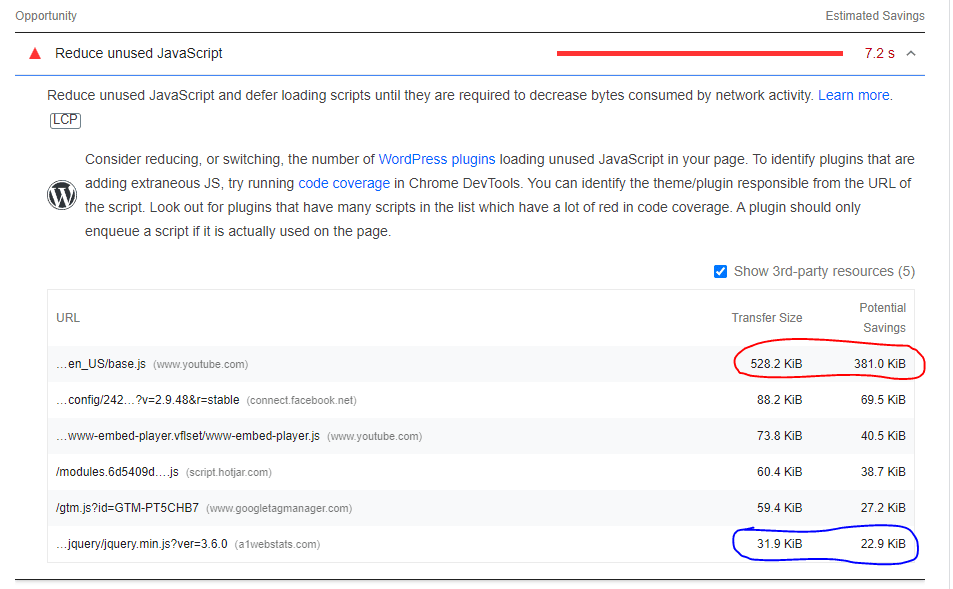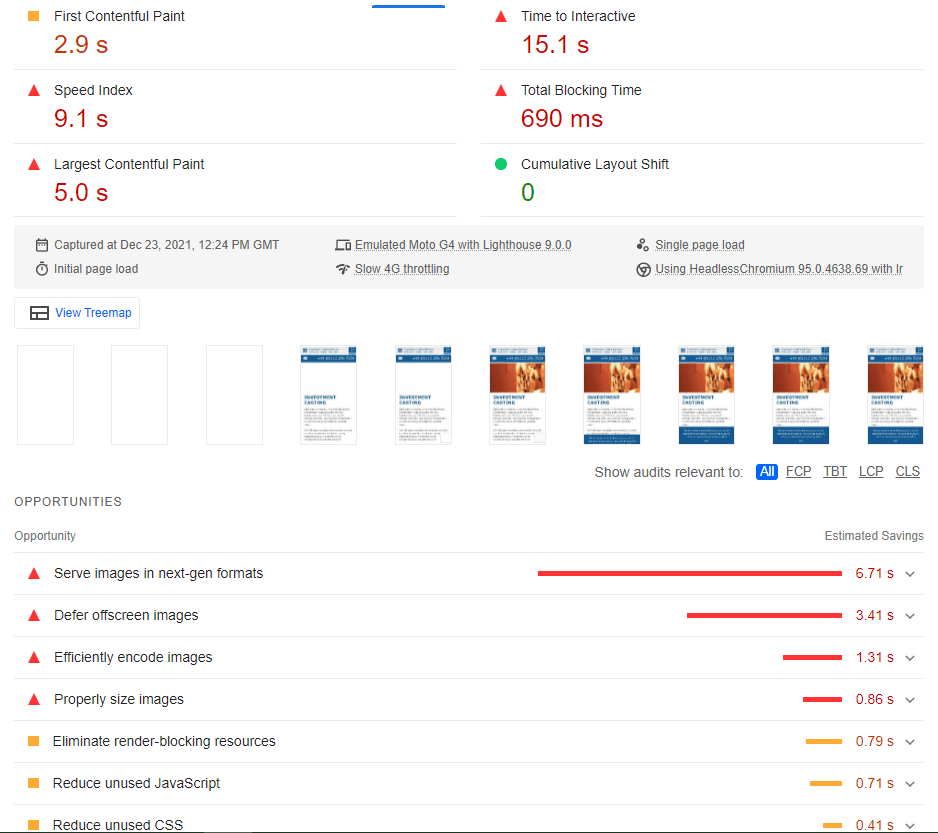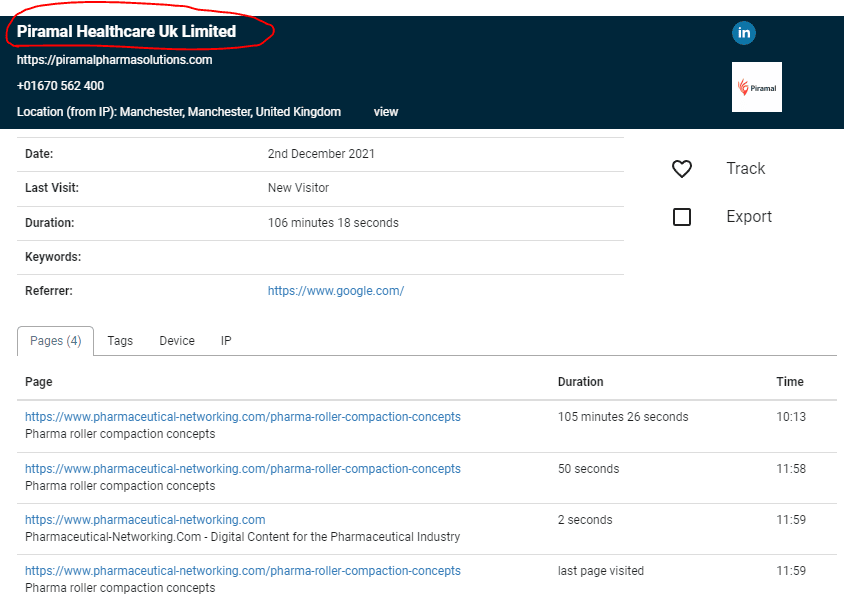
The importance of website loading speed vs useful visitors analytics
What do you think is more important:
- A website that loads fast, so that it stays on the right side of Google expectations.
- Having valuable website visitors analytics that help to generate more business.
???
The answer is: both.
But that’s something lost on some people – usually people who are unaware of a bigger problem.
That’ll slow the website down
When people take a free trial of A1WebStats, one of the requirements is to install a piece of javascript tracking code on the website.
That’s what makes it possible to identify the page by page movements of visitors, including names of companies that visited.
On occasion we get someone who responds to us with a comment similar to:
We can’t use your software because our web developer says it’ll slow the website loading speed down.
We then have to explain to the customer that our tracking code has an extremely limited impact on website loading speed.
We usually then make observations that there are other website page factors that are impacting website loading speed, and that perhaps the web developer should be focusing on those bigger issues instead.
We also say words to the effect of:
Even though your web developer means well, they are saying that it’s more important for your website to load at optimal speed, than it is to have insights into your website visitors that will gain you more business.
Factors that impact on website loading speed
There are numerous factors that impact on website loading speed and your starting point will be to use a free tool (for example, https://pagespeed.web.dev/) to enter any of your website pages into and see what it tells you about your page loading speed.
Here’s an example, showing that there’s an estimated 7.2 seconds of page loading speed that can be refined, purely related to javascript overall:
Where it gets interesting is by expanding out that section to show the specific javascript elements that are contributing to the slower page load speed:
The blue circled part is the A1WebStats javascript, which is having a tiny impact on page load speed when compared to the red circled part (YouTube) at the top of the list.
That red circled part is 16 times more of a negative impact than the A1WebStats tracking code.
Sometimes such things get accidentally or deliberately missed by web developers, who sometimes don’t know what’s needed to improve the website speed overall and so instead choose to pick on anything new that’s going to be added to the website code.
The point of this article isn’t to go into huge depth on factors that impact on website page load speed, but purely to focus on how small an impact the A1WebStats tracking code has when compared to other page elements that may be having a negative impact.
SEO obsession and website page load speed
There is a bit of an obsession about website page load speed, with some businesses totally convinced that their website has to be blisteringly fast to load in order to help with SEO.
While page speed most definitely is one factor in SEO, what’s often missed is this …
Fast but empty
A website can be super fast and tick that particular SEO box.
However, it doesn’t tick other boxes that help with SEO. For example, weak content on the page (that doesn’t engage people), or weak structure of the website (again, not helping).
You can have the fastest website in the world but if Google doesn’t like other factors, then you still won’t get that strong search engine positioning.
Proving the point
Here are the top two websites for a specific keyword phrase:
If website page load time was so important, then why is it that the website at the top of Google (number 1 above) is in that position when its load speed is poor compared to that in position 2 (number 2 above)?
Here’s the speed test for number 1:
And here’s the speed test for number 2, which is much stronger on speed but doesn’t have that number 1 position in the search results:
Speed isn’t everything – there are many other factors at play that will affect Google search positioning.
Benefits vs speed
Whatever type of code is being added to a website, it should have a positive impact that outweighs any arguments about website page load speed.
It may be A1WebStats tracking code, heatmapping code, or anything else.
As long as the code isn’t ridiculously bloated then the impact will be minimal but the benefits will be huge.
In the case of A1WebStats, it means getting granular level information about visitors to websites, including the names of companies that visited and what they looked at page by page, as in the example below:
That sort of information can be used to follow up on those companies and achieve what everyone wants: more business.
For something like heatmapping (e.g. Hotjar, Microsoft Clarity), it’ll be delivering highly useful information about how people interact with website pages. With that awareness, improvements can be made that will lead to people being more engaged with the page and making contact more. Again, achieving more business.
Web developers are not gods
Unfortunately, some companies take advice from their web developers but don’t investigate deeper.
This is understandable because the topics can become quite complicated.
Our advice, whatever you are thinking about adding to your website, is to just add it. Then run a speed test on that website page and see how the impact of that addition compares to:
- Other elements of the page that may be having a much bigger negative impact.
- The benefits that you get from the application you’ve installed.






Leave a Reply